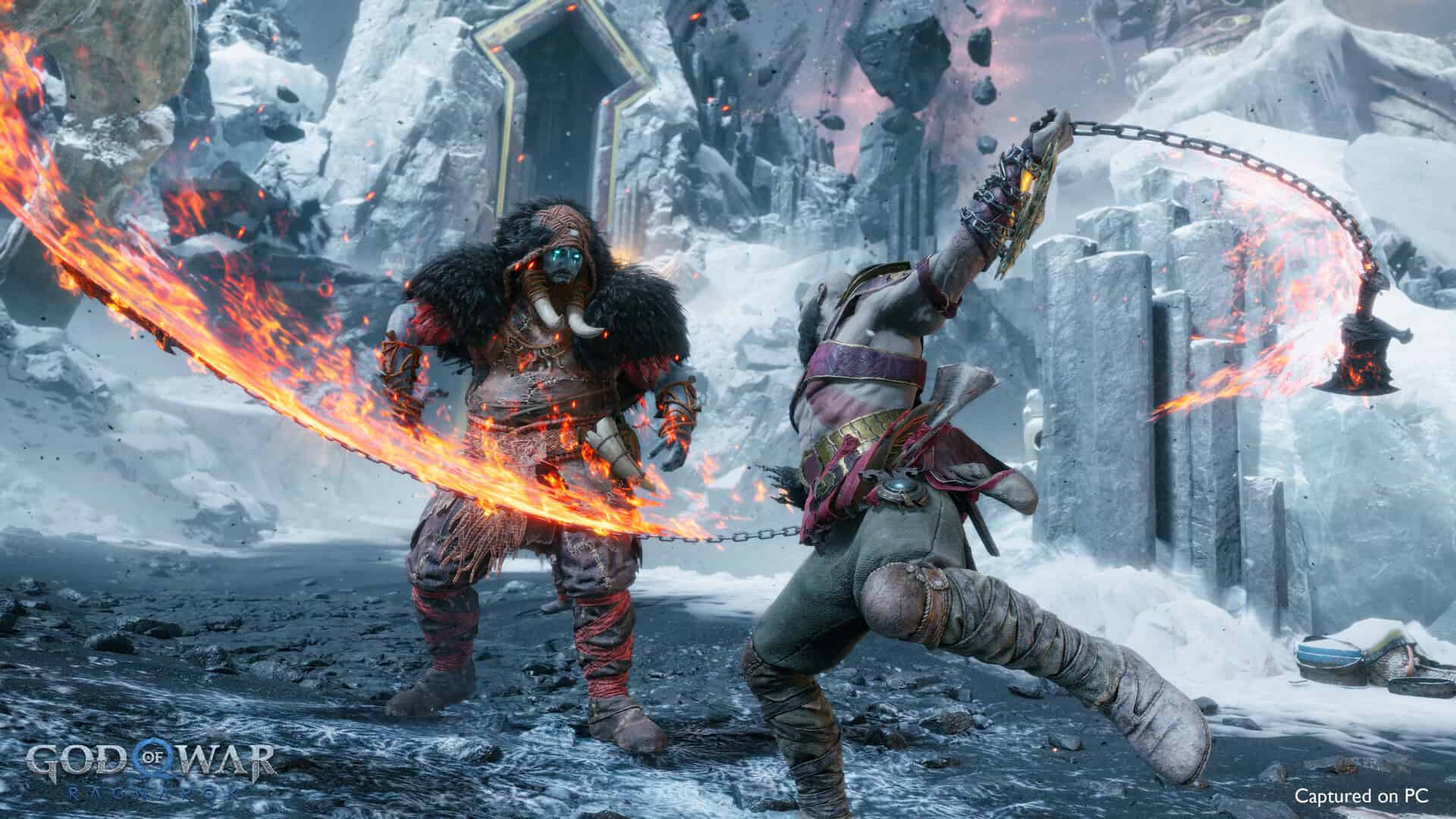The God of War franchise may soon return to its mythological roots, as reports swirl that Santa Monica Studio is crafting a brand-new installment set once again in Ancient Greece. While the studio has not made any official announcements, multiple industry insiders—including journalist Jeff Grubb—have hinted at a smaller-scale project that revisits Kratos’ original stomping grounds. This potential side story could mark the most significant shift in the series since its Norse reinvention in 2018.
A Return to Olympus?
This rumored title wouldn’t be a remake or remaster of the original trilogy, but an entirely new game set in the same mythological timeline. According to early reports, it may serve as a standalone experience—shorter in scope than the core titles—similar in format to Marvel’s Spider-Man: Miles Morales or Uncharted: The Lost Legacy. That structure could allow Santa Monica Studio to flesh out unexplored stories from Kratos’ past while staying agile and experimental in development.
Set possibly before or alongside the events of the original Greek-era trilogy, this entry could shed light on Kratos’ early years as a Spartan general or delve into mythological conflicts only hinted at in the original games. There’s also speculation that it could introduce new playable characters, perhaps centering on Greek gods or warriors who crossed paths with Kratos during his rise to power.
Perfect Timing: The 20th Anniversary of God of War
The timing of this rumor feels too perfect to ignore. 2025 marks the 20th anniversary of the God of War franchise, which began in 2005 on the PlayStation 2. Santa Monica Studio has already acknowledged the milestone with the Dark Odyssey Collection—a free cosmetic DLC released for God of War Ragnarök in March 2025 that featured skins inspired by the original Greek games. Fans saw this as more than just fan service; to many, it felt like a breadcrumb trail leading back to Olympus.
Adding fuel to the fire are recent job postings from the studio seeking developers with deep familiarity with the God of War franchise, including experience in “third-person melee combat” and “mythology-driven world design”—suggesting that the studio isn’t just done with Kratos yet, but possibly looking to revive what made him iconic.

Will It Play Like the Classics or the New Saga?
One of the most intriguing questions is how this hypothetical Greek installment will play. The original trilogy was known for its frenetic, combo-heavy combat and fixed camera angles, while the Norse saga embraced a slower, more grounded approach with an over-the-shoulder perspective and a single-shot cinematic style. Some fans are calling for a hybrid—blending the spectacle and speed of the older games with the weight and emotional depth of the newer ones.
Given the standalone format, this project could offer a playground for the developers to experiment with this hybrid gameplay model—satisfying both nostalgia and modern expectations.
Broader God of War Universe Expands
The momentum behind the franchise isn’t limited to games. Amazon Prime Video’s live-action God of War series is deep into development, with Battlestar Galactica’s Ron Moore serving as showrunner. Set to premiere in 2026, the show is expected to cover the Norse storyline, starting with the events of the 2018 reboot. Early production rumors suggest the series could eventually branch into Kratos’ Greek-era backstory as well, potentially syncing up with this rumored new game’s release.

Meanwhile, God of War Ragnarök continues to receive updates and support. Patch 6.05, released in April 2025, focused on bug fixes and performance improvements, though detailed patch notes were scarce. Fans appreciated the continued attention but have been clamoring for meatier content—another reason this new Greek title could land at just the right moment.
A Canceled Project, A New Direction
Interestingly, recent reports revealed that Sony scrapped a planned live-service God of War project earlier this year. While no official details were given, this cancellation appears to reflect Sony’s shifting priorities, as other multiplayer-first projects like Concord also faced setbacks. Instead, it seems the company is doubling down on narrative-driven single-player experiences—exactly what the God of War fanbase craves.
The Verdict: A Myth Reborn?
With the 20th anniversary fast approaching and clues stacking up, a return to Ancient Greece no longer seems like wishful thinking—it’s starting to feel inevitable. Whether it explores Kratos’ lost years, a new angle on familiar myths, or even another protagonist, this rumored game has the potential to reignite a beloved era while propelling the franchise forward.
For longtime fans, the idea of revisiting Olympus is thrilling. For newer players introduced during the Norse saga, it’s a chance to understand what made Kratos a gaming icon in the first place. Until Santa Monica Studio breaks its silence, we’re left with speculation—but if the winds from Mount Olympus are any sign, war is coming again.
Evolution of the Franchise
The God of War series has become one of PlayStation’s most iconic franchises since its debut in 2005. Following the journey of Kratos, a Spartan warrior with a tragic past, these action-adventure games have captured players’ imaginations with their epic storytelling and visceral combat. For newcomers to the series, knowing where to start can be confusing since the release order differs from the chronological story order.
To play the God of War games in story chronological order, follow this sequence: God of War: Ascension, Chains of Olympus, God of War (2005), Ghost of Sparta, God of War II, God of War III, God of War (2018), and God of War Ragnarök. This order follows Kratos’ complete journey from his early days serving the Greek gods through his eventual relocation to the Norse realms. The first six games comprise the Greek saga, while the last two represent Santa Monica Studio’s Norse chapter of the franchise.
Many fans recommend playing the games in release order for first-time players, starting with the original God of War on PlayStation 2. This approach allows players to experience the evolution of gameplay mechanics and graphical improvements as the series progressed across multiple PlayStation platforms. Whether choosing chronological or release order, each game provides crucial pieces of Kratos’ complex story.
Here are the God of War games in order of their chronological story:
- God of War: Ascension (2013) – PlayStation 3
- God of War: Chains of Olympus (2008) – PlayStation Portable
- God of War (2005) – PlayStation 2
- God of War: Ghost of Sparta (2010) – PlayStation Portable
- God of War: Betrayal (2007) – Mobile (This game is considered less essential to the main storyline)
- God of War II (2007) – PlayStation 2
- God of War III (2010) – PlayStation 3
- God of War (2018) – PlayStation 4
- God of War Ragnarök (2022) – PlayStation 4, PlayStation 5
- God of War Ragnarök: Valhalla (2023) – PlayStation 4, PlayStation 5 (This is an epilogue to Ragnarök)
If you’d prefer to play them in order of their release:
- God of War (2005) – PlayStation 2
- God of War II (2007) – PlayStation 2
- God of War: Betrayal (2007) – Mobile
- God of War: Chains of Olympus (2008) – PlayStation Portable
- God of War III (2010) – PlayStation 3
- God of War: Ghost of Sparta (2010) – PlayStation Portable
- God of War: Ascension (2013) – PlayStation 3
- God of War (2018) – PlayStation 4
- God of War Ragnarök (2022) – PlayStation 4, PlayStation 5
- God of War Ragnarök: Valhalla (2023) – PlayStation 4, PlayStation 5
Many players recommend playing in release order for the best experience, as it aligns with how the story and gameplay mechanics evolved over time.
Origins and Early Installments
God of War debuted on PlayStation 2 in 2005, introducing players to Kratos, a Spartan warrior seeking revenge against Ares. The game featured fluid combat, impressive visuals, and a compelling story rooted in Greek mythology.
Santa Monica Studio followed this success with God of War II in 2007, expanding on the original’s mechanics while continuing Kratos’s violent journey. The game pushed PS2 hardware to its limits with larger environments and more epic boss battles.
During this early period, the series also ventured onto portable systems. God of War: Chains of Olympus (2008) for PSP served as a prequel to the original game, showing Kratos during his service to the gods.
Main Console Triumphs
God of War III (2010) marked the series’ transition to PlayStation 3, taking full advantage of the console’s power. The game featured improved graphics, more dynamic combat, and massive set pieces that showcased Kratos battling both Titans and gods.
This entry completed the main Greek saga with spectacular boss fights and an emotional conclusion to Kratos’s revenge story. The scale was unprecedented, with battles taking place on moving Titans and environments that dynamically changed.
Santa Monica Studio refined their formula with each release, gradually adding more depth to both combat mechanics and storytelling. The fixed camera angles and combo-based action remained hallmarks of the franchise.
Expansion and Collections
To expand the series’ reach, Sony released several collections and side stories. God of War: Ghost of Sparta (2010) for PSP explored Kratos’s search for his brother, filling more gaps in the timeline.
The God of War Saga collection (2012) bundled five games together, making it easier for newcomers to experience Kratos’s journey. The God of War: Origins Collection brought the PSP titles to PS3 with enhanced graphics.
God of War: Ascension (2013) served as a prequel to the entire series and introduced multiplayer to the franchise for the first time. While the series stayed true to its action roots, each release added new mechanics, weapons, and narrative elements that grew the world and deepened fans’ connection to Kratos.
Cultural Impact and Legacy
God of War has risen beyond gaming to become a cultural phenomenon, redefining action-adventure games and setting new standards for storytelling in the medium. The franchise has garnered critical acclaim while influencing the broader landscape of video games.
Critical Reception and Awards
God of War titles consistently receive high praise from critics and players alike. God of War (2018) holds a 94% rating on Metacritic, showcasing the series’ consistent quality. The franchise has collected over 200 Game of the Year awards across its installments.
Santa Monica Studio’s work on God of War (2018) earned it six awards at The Game Awards, including the coveted Game of the Year title. The game’s reimagining of Kratos as a father dealing with grief and responsibility was particularly praised for its mature storytelling.
Critics have highlighted the series’ combat mechanics, visual design, and character development. The transition from Greek to Norse mythology in the 2018 reboot demonstrated the franchise’s ability to evolve while maintaining its core identity.
Influence on Gaming
God of War’s combat system has inspired many action games since its debut in 2005. The blend of visceral combat, puzzle-solving, and platforming created a template that numerous titles have followed.
Kratos has become one of gaming’s most recognizable characters. His evolution from a one-dimensional revenge-seeker to a complex father figure reflects the maturation of video game storytelling as a whole.
The series pioneered cinematic techniques that are now industry standards. God of War (2018)’s single-shot camera approach influenced how developers think about immersion and storytelling perspective.
The franchise’s success proved that single-player narrative experiences remain commercially viable in an era dominated by multiplayer and live-service games. This encouraged other developers to invest in story-driven adventures.
Frequently Asked Questions
Many players have questions about the God of War series. These questions range from the proper play order to platform availability and how the different titles connect within the overall storyline.
What is the chronological order of the God of War series?
The chronological order of the God of War series begins with God of War: Ascension, followed by Chains of Olympus, the original God of War, Ghost of Sparta, God of War II, and God of War III.
The series then transitions to Norse mythology with God of War (2018) and concludes with God of War: Ragnarok. This order follows Kratos’s journey from his early days serving the Greek gods through his later life in the Norse realms.
Which platform supports all the God of War games?
No single platform currently supports all God of War games. The original titles were PlayStation exclusive, with the first games appearing on PS2.
The PSP hosted Chains of Olympus and Ghost of Sparta. PS3 offered the main trilogy and Ascension, while PS4 and PS5 support the newer titles. Some games have been remastered for newer platforms, but a complete collection on one system isn’t available.
How many God of War titles are there in total as of 2025?
As of March 2025, there are nine main God of War titles in the franchise. This includes the original trilogy, two PSP games (Chains of Olympus and Ghost of Sparta), Ascension, the 2018 reboot, Ragnarok, and the mobile game A Call from the Wilds.
Several collections and remasters have also been released over the years, but these aren’t counted as separate titles.
Is God of War: Ragnarok the direct sequel to God of War (2018)?
Yes, God of War: Ragnarok is the direct sequel to God of War (2018). It continues the story of Kratos and his son Atreus in the Norse realms.
Ragnarok picks up a few years after the events of the 2018 game. The story addresses the consequences of their previous journey and confronts the approaching Ragnarok, the prophesied end of the Norse gods.
Does God of War: Ascension fit into the main storyline of the series?
God of War: Ascension serves as a prequel to the entire series. It takes place about six months after Kratos was tricked into killing his family.
The game shows Kratos attempting to break his blood oath to Ares. While considered part of the main storyline, some fans view it as less essential to understanding the overall narrative compared to other titles in the series.
What narrative function does God of War: A Call from the Wilds serve in the franchise?
God of War: A Call from the Wilds is a text-based adventure game released as a promotional tool for God of War (2018). It focuses on Atreus before the events of the main game.
This mobile experience provides additional background on Atreus’s character development and his relationship with his mother. While not essential to the main storyline, it offers supplementary context that enriches the narrative of the 2018 game.







